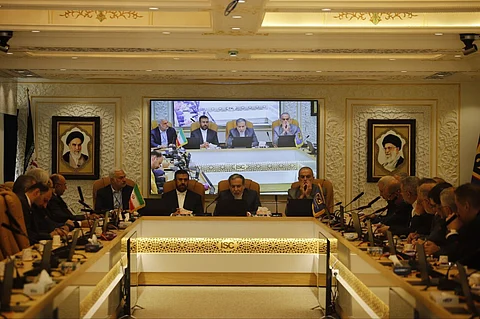

Iran has issued a stark warning to the United States, asserting that Washington would bear joint responsibility for any Israeli military strike targeting its nuclear facilities.
Foreign Minister Abbas Araghchi, in a letter to the United Nations, declared that Iran would respond “decisively” to Israeli “adventurism,” while the Islamic Revolutionary Guard Corps (IRGC) vowed a “devastating” retaliation aimed at Israel’s “vulnerable geography” in case of any strategic mistake.
These warnings follow a CNN report citing U.S. intelligence indicating Israel’s preparations for potential strikes on Iranian nuclear sites, including movements of air munitions and completed military exercises.
Fifth Round of Nuclear Talks in Rome
On May 24, the U.S. and Iran will commence a fifth round of nuclear negotiations in Rome, mediated by Oman. The talks aim to strike a new nuclear deal following the defunct 2015 Joint Comprehensive Plan of Action (JCPOA), which collapsed after the U.S. withdrew under President Donald Trump. The U.S. delegation, led by Trump’s envoy Steve Witkoff and State Department policy adviser Michael Anton, insists on a complete stop to Iran’s uranium enrichment, which currently stands at 60% purity—far exceeding the JCPOA’s 3.67% cap. Iran, meanwhile, demands relief from American sanctions, and has squarely rejected U.S. calls to dismantle its uranium enrichment infrastructure, citing its “inalienable right” to nuclear energy and domestic enrichment under international law.
Military Developments and Domestic Pressures
Amid the diplomatic standoff, pro-nuclear enrichment rallies were held by Iranians near the Fordow enrichment plant. Protesters chanted slogans affirming Iran’s right to uranium enrichment, reflecting domestic resolve to resist external pressure. Meanwhile, Israel—which views Iran’s nuclear program as an existential threat—has reportedly intensified preparations for strikes, though U.S. intelligence remains divided on whether a final decision has been made. Analysts note that Israel’s ability to cripple Iran’s nuclear infrastructure without U.S. logistical support, such as mid-air refueling and bunker-busting bombs, remains extremely limited.